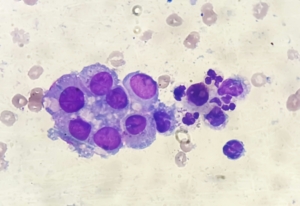Algorithm tracks cancer type down to methylation pattern
Researchers have applied a self-learning algorithm to distinguish the almost 100 brain cancer types through their methylation pattern in a routine diagnostic setting. The method eliminates inter-pathologist variation in histopathological diagnosis and resulted in a change of diagnoses in up to 12% of prospective cases.
The group headed by Stefan Pfister at German Cancer Research Center (Heidelberg) reported in Nature that the availability of their method may have a substantial impact on diagnostic precision compared to standard methods. What’s more, it could provide a blueprint for the generation of machine-learning-based tumour classifiers across other cancer entities, with the potential to fundamentally transform tumour pathology. Inter-centre reproducibility of results was 96% even when DNA extraction and analyses were performed independently.
The oncologists tested their algorithm on 1,104 central nervous system tumours that had previously been examined manually, and identified misdiagnoses in 12% of cases. Trained with reference data taken from around 2,800 patients with cancer, the program identified 91 tumour types by its methylation fingerprints, obtained by DNA methylation microarrays and gene signature profiling analysis. Alongside improving diagnostic accuracy, the program’s objectivity allows for new rare tumours to be identified as such unlike with manual classification, in which there is a pressure to assign tumours to known categories, even in atypical cases.
To make the new approach accessible, Pister’s team designed a free online classifier tool that analyses uploaded data in mere minutes and the use of which does not require any additional onsite data processing. The tool gives users the option to share their data to further refine the algorithm. The authors have filed a patent application for a DNA-methylation based method for classifying tumor species of the brain.


 Unsplash+
Unsplash+
